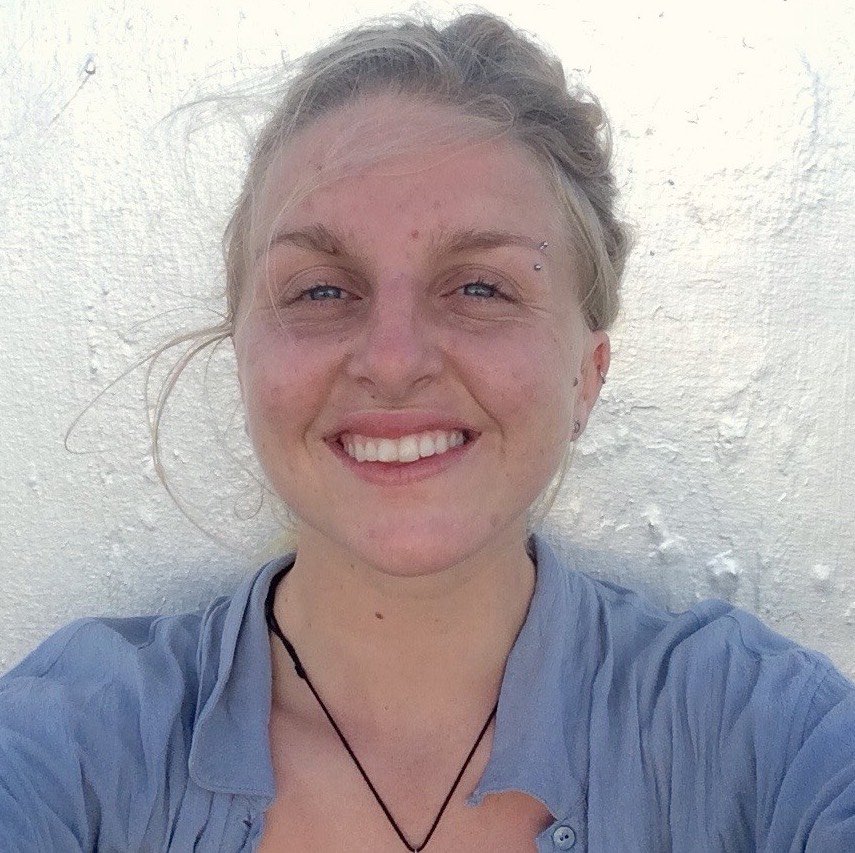Greece Freezes Asylum System As Lesvos Residents Block Migrant Boats From Landing
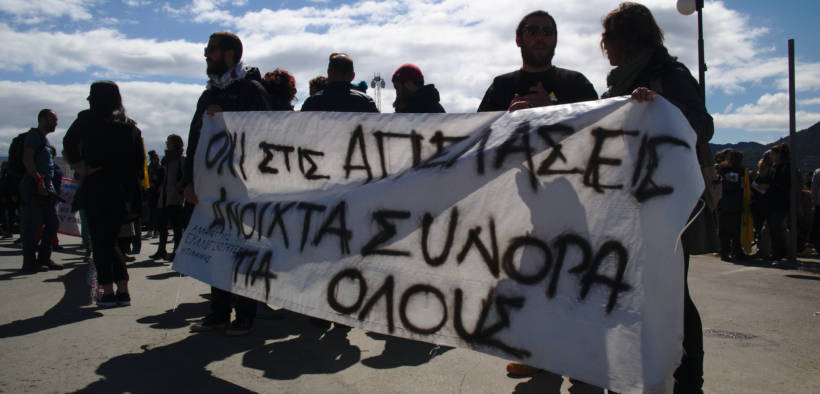
“In reaction to tense social conditions and a weakening of the Aegean border, the Greek prime minister froze the nation’s asylum application system on Sunday night.”
Over the past week, a series of changes in Greek and Turkish migration governance exposed an unraveling of the commitments made in the 2016 EU-Turkey deal. In reaction to tense social conditions and a weakening of the Aegean border, the Greek prime minister froze the nation’s asylum application system on Sunday night.
Turkey breaks the deal
Turkish authorities announced Thursday that they would no longer restrain movement of those pursuing migration into Europe, and would allow asylum-seekers to exit the country in that direction. This action of migration prevention was a condition of the multilateral agreement made four years ago, which negotiated the hardening of European borders by promising Turkey 6 billion euros in support.
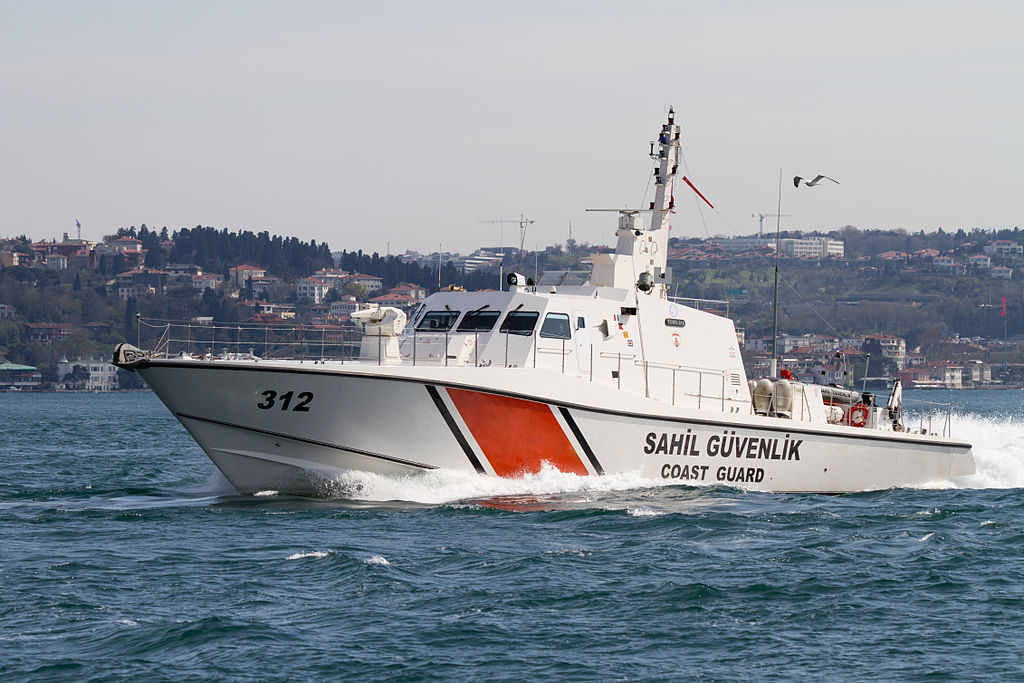
A Turkish coast guard vessel, which will no longer patrol and prevent boat departures from its shores. Photo by © Guillaume Piolle
Migrants arriving in Greece over the weekend reported that smugglers had offered free passage on boats which cross from the west coast of Turkey to Greek islands. This same journey has carried a price tag of three to four thousand euros per person, depending on the weather and the levels of demand.
Why would this profit engine stop charging? The steep and entire drop off of price suggests that the smugglers have fallen into an agreement with the Turkish authorities.
“Instead of curtailing networks of people smugglers, Turkey has itself become a smuggler,” Greek government spokesperson Stelio’s Petsas said.
Turkish president Erdogan argues that the country have not received the entire 6 billion euros that was promised. Between that and absence of support in the Turkish-Syrian conflict zone of Idlib, Syria, Erdogan chose to change the country’s governance of refugee and migrant movement.
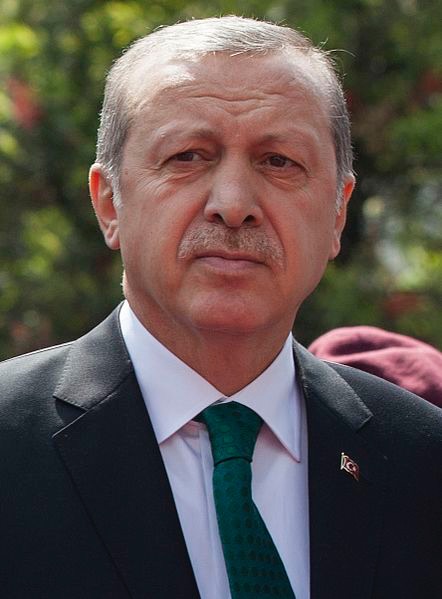
President Erdogan
President Erdogan has threatened repeatedly to release what he speculates will be a very large flow of refugees who would continue towards Europe if the Turkish coast guard and authorities stop intervening. More Syrians have been recently displaced from Idlib, which only adds to a remarkably large population in Turkey.
Arrivals on the islands this weekend
Chios, Lesvos and Samos – the three islands closest to Turkey – are the destination of the majority of smuggling routes. They registered the arrival of over 500 people on March 1. By the evening, prime minister Kyriakos Mitsotakis tweeted that Greece was no longer accepting asylum applications for the duration of a month.
Instead, the authorities will deport new arrivals directly to their home countries when possible, without identification or registration in Greece.
Usually, all asylum-seekers would be moved by Greek authorities to Moria camp on Lesvos, where the highest concentration of migrants wait out their applications in the self-assembled shanty-town outside of the registration center.
Many in the Lesvos community reacted with anger and anxiety to predictions made that arrivals would spike as a result of the changes in Turkey.
A crowd gathered in the small harbor of Thermi and prevented about 50 migrants on a boat from disembarking, Ekathimerini reported. Others prevented police buses used to transport migrants from reaching Moria camp.
Protests have become more heated in the last week, rejecting the migrant population on Lesvos and the idea of new registration and holding centers. These protesting groups target migrants and NGO workers as the cause of economic and logistical challenges that the island has faced since 2015.
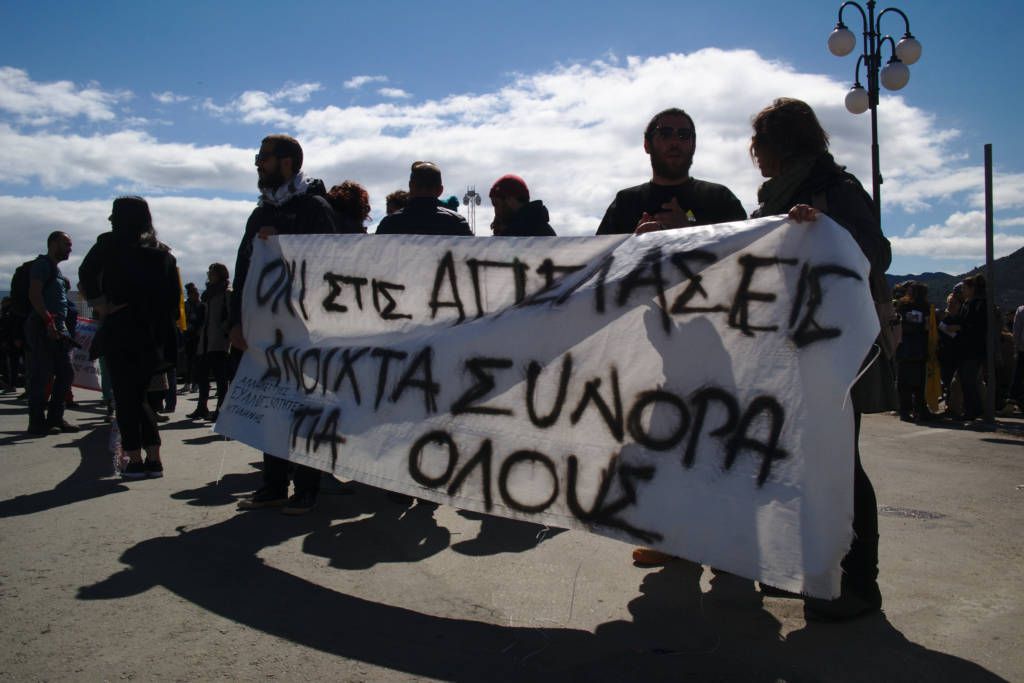
A rally against asylum-seeker deportations in 2016. Photo by Phil Jones.
Rallies in solidarity with migrant rights have also occupied the city of Mytiline frequently in the past year. They voice that the living conditions and facilities for migrants on the islands are dangerous and unhygienic.

